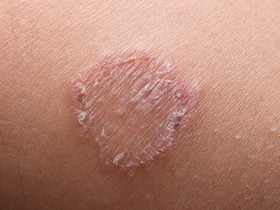Overview

Sarcoidosis is a condition [1] where inflammatory cells start to develop in different areas of the body. The common body parts where these growths occur are in the lungs, lymph nodes, eyes, and skin. This is not a common condition but can be mild or severe.
There is no known cure for sarcoidosis, but treatment [2] can help improve the symptoms. This condition cannot be self-diagnosed but requires a medical diagnosis. Your doctor can give you a correct diagnosis after conducting laboratory tests. Sarcoidosis can be mild, where symptoms improve on their own after a few days. Or, can be chronic where it lasts for several years or lifelong.
If you have sarcoidosis, the inflammation cells tend to accumulate in certain body parts, and this may cause flu-like symptoms. Common symptoms include night sweats, achy joints, and extreme tiredness. This inflammation can cause scar tissue in your lungs while altering normal lung functioning. Many people suffering from this condition also have skin and eye damage in addition to lung disease.
Mild Sarcoidosis is more common than chronic; hence, minimal treatment is usually required. Only in a few cases does it last for years and cause health complications like organ damage. Most people with sarcoidosis live normal lives. Research has shown that up to sixty percent of people with sarcoidosis recover on their own without any treatment, and thirty percent have a recurrence of the disease that may or may not require treatment. Only ten percent of patients record chronic and long-standing disease that causes significant damage to organs or tissues and are life-threatening.
Patients have discovered that low-impact exercises [3] can help improve sarcoidosis symptoms. Workouts like walking, yoga, and swimming can greatly improve the condition. It is advisable to get exercise tips from other sarcoidosis patients because they have experienced it first-hand and they know which are most effective. These exercises help eliminate soreness and fatigue.
Now let’s examine the causes [4] of sarcoidosis:
Medical experts are yet to determine the exact cause of sarcoidosis. However, studies have shown that people are prone to develop this disease due to certain risk factors like sex, age, environmental factors, genetics, and ethnicity.













